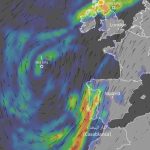Nationwide Building Society has offered fresh clarification for customers after some noticed unexpected overdraft fees flagged on their statements. The update comes as people increasingly check their online and mobile banking for any early warnings about upcoming charges.
A Nationwide customer sparked the conversation after querying why interest had appeared on their account, despite staying within the interest-free buffer.
The customer said: “All through October I was never above £50 overdrawn (which it tells me is interest-free), yet I’ve still had overdraft charges this month?”
Nationwide explains how overdraft charges are scheduled
On its website, Nationwide explains how overdrafts work across its current accounts. It states: “All of our current accounts offer an arranged overdraft, except FlexBasic.
If you have a FlexPlus, FlexDirect, or FlexAccount, there’s no interest on the first £50. After that, you’ll pay 39.9% a year compounded (variable).”
This interest-free zone is also available on certain accounts aimed at younger or studying customers, including FlexStudent, FlexGraduate, and FlexOne. Anyone can request an arranged overdraft when opening a new account or at a later date if needed.
Why do overdraft charges sometimes appear later?
Responding to the customer’s concerns, Nationwide clarified how overdraft interest is billed and why charges can show up weeks after the overdraft was used.
The building society said: “You’ll always be given 28 days’ notice of any overdraft charges, which is provided in your monthly statement and will show charges that are due to leave your account in the next month.
This means some charges can go out two months from when they were incurred.”
In simple terms, this means a charge shown on your statement today may relate to overdraft use from several weeks ago. This system is fairly standard across UK banks, though the 28-day notice period sometimes catches customers off guard.
No unarranged overdrafts at Nationwide
Unlike numerous high-street banks, Nationwide doesn’t allow unarranged overdrafts. This means if you go beyond your arranged overdraft limit, or dip below zero without one, payments will stop rather than push your account further into debt.
Card payments, cash recessions, and transfers may be declined until the balance is brought back into credit.
While this can be inconvenient in the moment, it does help prevent charges from spiralling and avoids the threat of harming your credit record. numerous guests prefer this safety net, especially those managing tight budgets during the cost- of- living pressures.
Branch network commitment
Away from overdraft rules, Nationwide recently made headlines with its pledge to keep all 605 of its UK branches open until at least 2030 — a rare promise as many banks continue to scale back in-person services.
The society does add a caveat, saying: “There may be circumstances beyond our control that mean we have to close a branch. Or relocate it to the same town. We’ll only do so when there’s no other workable option.”
For guests who still prefer face-to-face banking, branches remain a crucial place to open new accounts, pay in cash, withdraw plutocrat, and get support with further sensitive matters such as penalties or setting up a power of attorney.
What does this mean for Nationwide customers?
Overall, the update offers consolation and a clearer explanation of how Civil overdraft charges work, helping account holders better understand what appears on their bank statements and when charges will be taken.
For anyone keeping a close eye on their finances, knowing that charges may be delayed and always notified in advance can help alleviate gratuitous solicitude.






